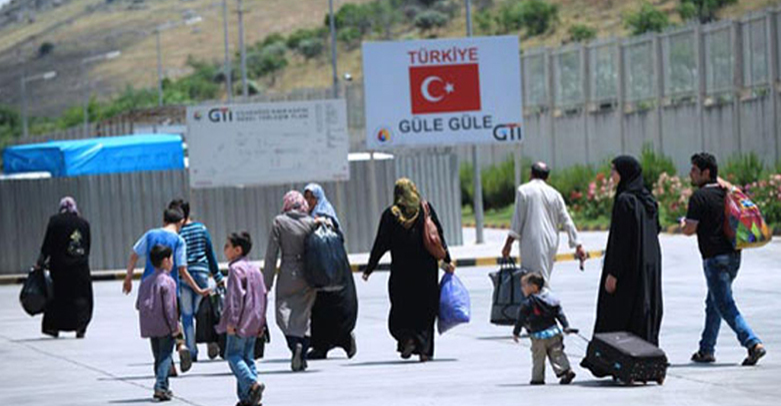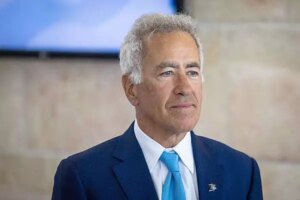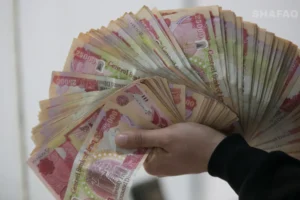
Shafaq News
Hanine Jabbar packed her bags and took one last look at the street she had lived on in Turkiye before deciding to return to Iraq.
Living quietly in Istanbul since 2015, Jabbar cited soaring living expenses as the reason behind her departure. “The situation in Turkiye has changed. Securing residency, paying rent, and finding adequate housing have become increasingly difficult,” she explained to Shafaq News.
“The financial situation is unbearable. What we earn no longer covers basic needs,” she continued. “The cost of living in Turkiye is now comparable to Dubai, but without the same level of services.”
Jabbar’s account reflects a broader reality. According to data from the Turkish Statistical Institute (TÜİK), consumer prices in Turkiye increased by 71.6% year-on-year as of June 2025. The inflation rate had peaked at over 85% in late 2022 before stabilizing, but prices of essentials—particularly food, housing, and transportation—remain substantially higher than pre-2020 levels. According to a May 2025 report by the Turkish Union of Chambers of Tradesmen and Craftsmen, average residential rents in major Turkish cities have surged by more than 140% over the past two years, outpacing wage growth and deepening the cost-of-living crisis for both citizens and foreigners.
In 2023, thousands of Iraqis who had spent years in Turkiye began returning home due to mounting difficulties in obtaining or renewing residency permits—despite owning property or running businesses. The trend continues. Official data from Turkiye’s Presidency of Migration Management shows that over 17,800 Iraqi nationals left Turkiye voluntarily in 2023, many of them citing economic hardship and bureaucratic hurdles.
Stalled Progress
Tamara Faiq, who lived in Turkiye for six years, explained she was unable to achieve her goals and chose instead to immigrate to the United States. “In the US, one can study, work, and eventually get citizenship. In Turkiye, there is no path for immigrants to advance. Time passes without progress,” she reflected.
Faiq pointed to additional obstacles beyond living costs, including delays or denials in issuing residency permits. “Many Iraqis spent years trying to secure legal residency in Turkiye, but most applications were rejected. The approval rate now is around 1%.” Her experience aligns with legal reports indicating that by mid-2024, Turkiye rejected approximately 98.7% of residency renewal applications submitted by Iraqi nationals, particularly in cities like Istanbul, Ankara, and Antalya. Analysts point to policy changes aimed at limiting foreign residency, especially in regions classified as “saturated.”
Economic Strain
Iraqi journalist Mustafa al-Wasiti, who works in Ankara as a correspondent for an Iraqi TV channel, recounted that his $1,500 monthly income was sufficient in his first year but no longer covers expenses.
“I worked for several media outlets just to cover rent, utility bills, and communication costs,” he noted. “The apartment I once rented for $200 now costs $500. Financially, it’s become extremely difficult.”
Al-Wasiti, tied to his job and accustomed to life in Turkiye, indicated that returning to Iraq is not an option. “The amount I earn would be considered high in Iraq but is barely enough to survive here.” He estimated that only a small number of Iraqis remain in Turkiye, most of them unable to leave and exploring other options such as immigration to the US.
Mazطn al-Maamouri, another Iraqi resident, shared that he used to get a monthly remittance of $700 to $800 from Iraq, which was once sufficient. “Early this year, workers received wage increases, but prices rose even more. Rent, public transport, and food costs all surged—prompting many Iraqi families to return home,” he remarked.
Tightened Rules
Turkish economist Jalal al-Bakkar attributed the Iraqi exodus to stricter rules on tourist and property-based residency. “Authorities imposed new financial conditions on property-related residency permits and placed tighter controls on tourist visas. This pushed out long-time residents,” he observed.
He added that the Turkish Lira’s depreciation further raised costs. “Iraqis were the top foreign buyers of real estate in Turkiye until 2023, but now property ownership no longer guarantees residency—putting their status at risk.”
According to the Turkish Statistical Institute, Iraqis purchased more than 10,000 properties annually between 2018 and 2022, making them the top foreign investors in the Turkish housing market. However, property-based residency rules were amended in early 2023, requiring higher property values and longer holding periods to qualify for legal status.
Turkiye’s economy has been hit by a series of crises, Bakkar outlined, including the 2023 earthquake, national elections, and global inflation. “The Russian-Ukrainian war drove up prices of essential goods. Turkiye relies on Russian gas and has economic ties with Ukraine. All of this has weighed heavily on the Turkish economy,” he explained.
The 2023 earthquake in southern Turkiye caused economic damage exceeding $34 billion, according to World Bank estimates, straining public resources and prompting the government to tighten social spending and migration controls.
Over the past two decades, conflict and instability forced thousands of Iraqis to seek safety in neighboring countries, with Turkiye becoming a major destination. But rising costs and tighter regulations have driven many to return—while others wait, hoping for a chance to resettle in Europe. According to the United Nations High Commissioner for Refugees (UNHCR), more than 11,000 Iraqis currently residing in Turkiye are actively seeking asylum in Europe, with Germany, Sweden, and the Netherlands being the most sought-after destinations.
Written and edited by Shafaq News staff.





